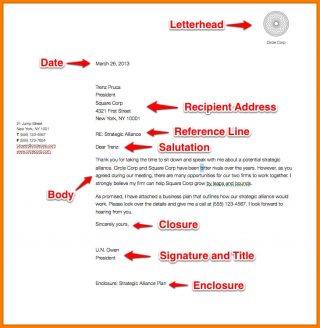 Welcome to our topic entitled Business Communication! Here, you will learn the basic nuances of business communication, business letters, the different types of business letters, memos, application letters and more. In short, this topic will introduce you to the world of business and the nuances of business writing, transacting, and dealing with business people. It effectively prepares you what lies ahead. So, gear up and let’s make business work for us.
Welcome to our topic entitled Business Communication! Here, you will learn the basic nuances of business communication, business letters, the different types of business letters, memos, application letters and more. In short, this topic will introduce you to the world of business and the nuances of business writing, transacting, and dealing with business people. It effectively prepares you what lies ahead. So, gear up and let’s make business work for us.
Intended learning outcomes (ILOs)
At the end of this topic, you should be able to:
- Define business communication;
- Explain the types of business communication;
- Define and explain the nature of business letters.
What is business communication?
- advertising,
- external relations,
- branding,
- event management,
- marketing, and
- any other topic related to the organizational structure of that company.
Business communication should not be mistaken for technical communication or professional communication, even though they are strongly related. The business type of communication can be considered a common language for any company, no matter its area of expertise. This type of interaction has the sole purpose of improving the organizational practices, reducing the errors and providing a clear guidance, for the team members. Even though it has been here for a long time, business communication improved a lot in the last decades. That’s why, today, we can identify a series of business communication types, suitable for different circumstances.
Types of Business Communication
Depending on every particular enterprise, several business communication methods have been implemented. These methods share some common patterns, but they come with different styles of delivering the information. The most common types of business communication are:
- Verbal. This is the oldest form of business communication, but it still remains popular. This interaction method includes live meetings, face-to-face interviews, personal task assignments, and some other related methods. There are some people who consider verbal communication as the best form of business communication, because of its simplicity and its direct interaction between the participants. The human interaction allows the manager to observe its team and to examine any form of nonverbal communication. On a negative note, verbal communication is highly dependent on the physical presence of all participants, and sometimes, this can be hard to achieve. Verbal communication often leads to misunderstandings, and the participants tend to forget or misinterpret some of the debated issues. That’s why, when it comes to sensitive topics, many team-leaders use another form of business communication.
- Written. Written communication is considered to be more concise and more explanatory. It consists of formal letters, official memos, posters, flyers, and everything that comes written on a paper. Written business communication is also used for more complicated assignments, where some additional instructions are necessary. The technical departments are often using this form of interaction, to exchange clear information, with no room for error. Also, it is used for any legal situation, like formal notices and labor contracts. Still, written business communication is considered by many entrepreneurs an obsolete method, and it’s mostly being used for legal situations. The technological progress granted us a new communication method, which seems to stand above all.
- Electronic. Electronic communication is no longer at its experimental status, and it’s soon expected to become a standard when it comes to business interaction. Despite other forms of business communication, online business communication manages to offer all the advantages of the previously mentioned methods, and even more. With electronic communication, the information will be delivered faster, in a more accurate manner and it will not be dependent on the location of the interlocutor. For a more qualitative online business communication, it’s strongly advisable to use an advanced platform, which will give you access to a suite of useful tools.
What is a business letter?

Business letter is a form of written communication within an organization and or between two organizations. It is differentiated from a general letter by its layout and form which is well established by convention and practice.
Nature of a business letter
Main purposes of a business letter
- To exchange information: The main purpose of business letter is to exchange information related to business. Through it, business organizations collect and convey business related information.
- To establish business relationship: By exchanging information through business letters, new business relationships can be established with various parties and existing relationships can be strengthened.
- To make inquiry: Another important objective of writing business letter is to make inquiry about people, product, price etc. With the expansion of business operations of a business, importance of business letter is also increasing.
- To take right decisions: Taking right decisions require accurate information. Since business letter s collect information form reliable sources, executives can take right decision using that information.
- To place orders: A common purpose of writing business letter is to place order for goods specifying quantity, quality, price, payment method etc.
- To create goodwill: Goodwill is an important asset for any business. Businesses can create goodwill by writing letters like order confirmation letter, adjustment grants letter, inquiry letter, reply to inquiry letter etc.
- To save time and cost: Saving time and cost of communication is another objective of writing business letter. Posting letter is cheaper and less time consuming than making personal visits.
- To expand markets: Through writing various business letters like inquiry letter and circular letter, business organizations can create new market for their products.
- To overcome misunderstanding: If there arise any misunderstanding between a business and its stakeholders, business letter is written to overcome it.
- To settle transactions: By means of writing business letter s, concerned parties can settle their transactions. For example, customers write claim letters to the sellers for compensations, sellers write collection letters to customers for collecting dues.
- To keep records: Another reason for the wide use of business letter is to keep permanent record of information. Business letters help to develop an information base in the organization and facilitate future decision making.
References
- Business communication. Business Dictionary.com. Retrieved August 5, 2018, from BusinessDictionary.com. Website: http://www.businessdictionary.com/definition/business-communication.html
- Business communication image. Wikimedia Commons. Retrieved August 5, 2018, from Commons Wikimedia.org. Website: https://commons.wikimedia.org/wiki/File:Ghozt_Tramp_-_Business_Communication_Duplicat_model.jpg
- Business communication. ezTalks. Retrieved August 5, 2018, from ezTalks.com. Website: https://www.eztalks.com/unified-communications/types-of-business-communication.html
- Purposes of Business Letter. The Business Communication. Retrieved August 5, 2018, from The Business Communication. Website: https://thebusinesscommunication.com/purposes-of-business-letter/